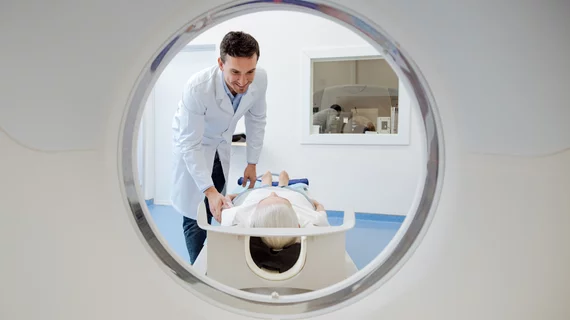Acoustic noise reduction in MRI significantly reduces patient discomfort without hurting image quality
Loud sounds emitting from MRI machines can erode a patient’s experience, but Swiss imaging experts may have found the fix.
Researchers with the Department of Radiology at Kantonsspital Winterthur recently detailed some of their early successes utilizing acoustic noise reduction software. Testing the intervention out on 200 consecutive patients at a single center, Elisabeth Sartoretti and colleagues founded marked gains, with patients better able to hear their headphones during exams.
“Our study indicates that the effects of acoustic noise reduction in routine clinical MRI can be translated into reduced patient discomfort from acoustic noise and improved audibility of music,” Sartoretti, a candidate of medicine in the Winterthur, Switzerland-based hospital’s Department of Radiology, and colleagues wrote Nov. 3. “Acoustic noise reduction, thus, significantly contributes to increased patient comfort during MRI examinations,” they added.
To reach their conclusions, the research team prospectively evaluated 200 patients undergoing one of four different MRI exams—brain, lumbar spine, shoulder and knee. They were broken up into two equal-sized groups, with one receiving standard imaging while the underwent MR with noise reduction. Patients received questionnaires afterward, and two readers assessed the images for any quality issues.
Individuals in the intervention group reported feeling less discomforted by the noise, while clinicians had no qualms about the results, the team wrote.
“Image quality seems to remain unaffected by the addition of acoustic noise reduction software,” Sartoretti et al. advised. “We thus recommend adding acoustic noise reduction to MRI protocols as noise reduction is a step toward a more positive MRI experience for patients.”
Read more of their analysis in Academic Radiology here.

